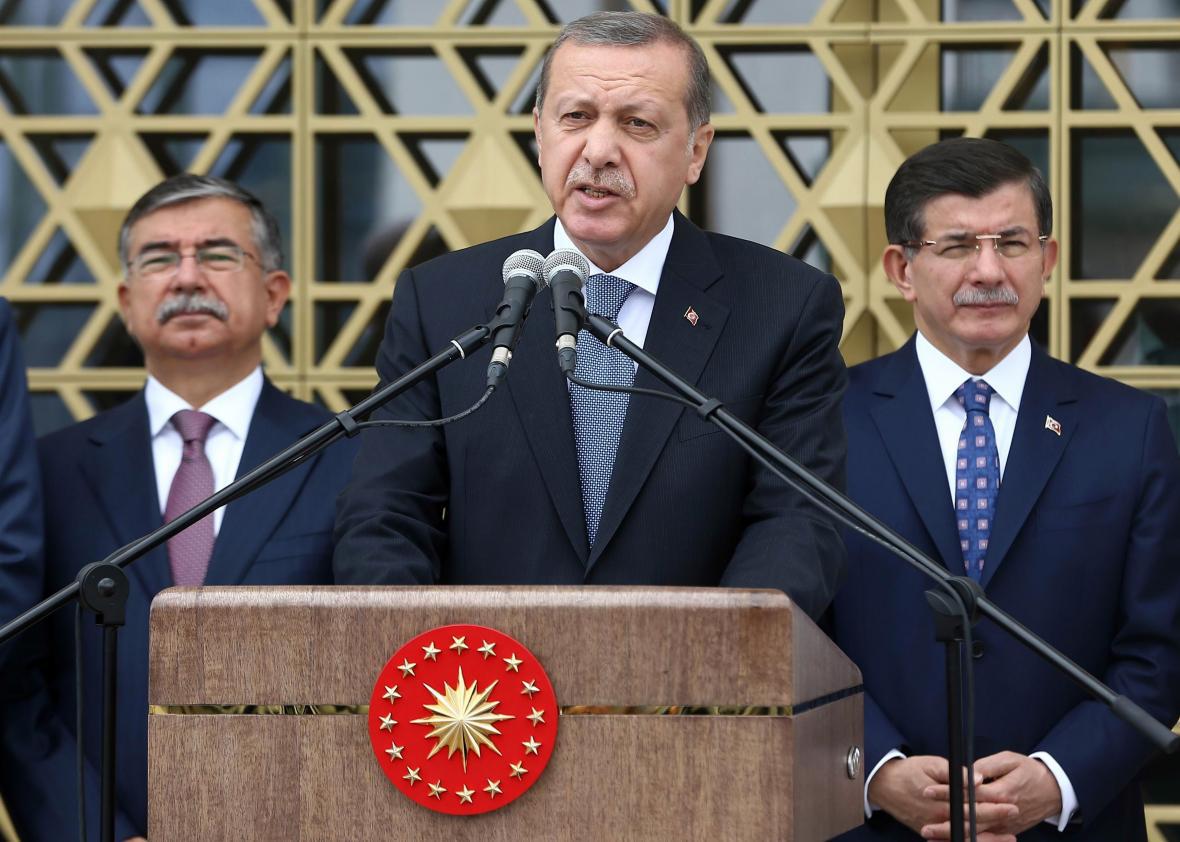Obama administration officials have described Turkey’s agreement to finally commit to the air war against ISIS in neighboring Syria as a “game changer,” and it may well be if the NATO country succeeds in setting up a safe zone free from both ISIS and Bashar al-Assad’s military. But for the moment, Turkey seems more intent on attacking another enemy altogether.
Since last week, Turkish jets have launched airstrikes into Iraq, targeting the Kurdistan Workers Party (PKK), the Kurdish nationalist militant group it has fought with varying degrees of intensity since the mid-1980s. The PKK has retaliated with attacks on military targets in Turkey. The recent uptick in violence has derailed a peace process between President Recep Tayyip Erdogan’s government and the PKK that began in 2012. The strikes against the PKK have been much heavier than those against ISIS so far, leading Kurdish politicians to accuse the government of using the ISIS operation as cover.
Turkey’s two-front war is also contradictory, as Kurdish forces in both Iraq and Syria have been the most effective force battling ISIS. Turkey is bombing its enemy and its enemy’s enemy, a position the U.S. is also familiar with.
With Kurdish nationalism on the rise in Iraq and Syria, and Kurdish parties making dramatic political breakthroughs in Turkey, Erdogan’s government is concerned that the fight against ISIS will increase the PKK’s influence—one of the main reasons it’s been reluctant to get involved in fighting ISIS until now. Recent ISIS attacks have forced Erdogan to reckon with the ISIS threat, but he’s still clearly hoping it’s possible to play both sides.
